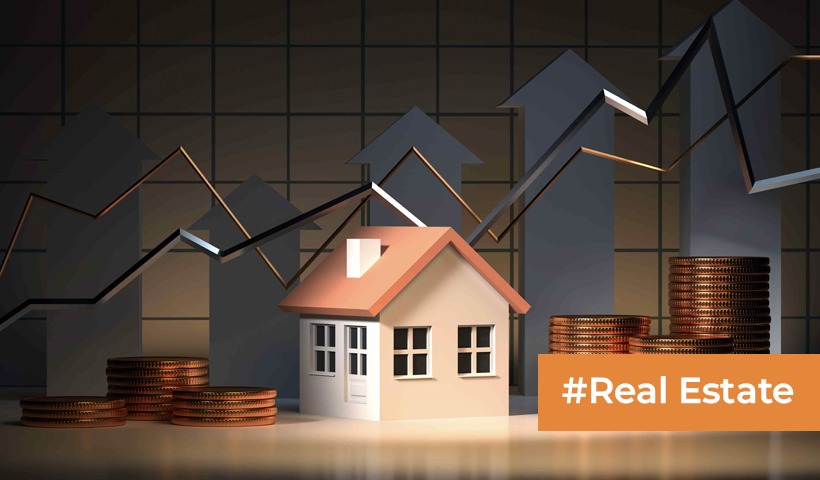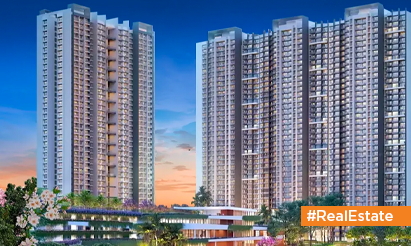What is GST on Flat Purchase 2024? Navigating New Rates & Impacts!
The introduction of the Goods and Services Tax (GST) on flat purchases has brought significant changes to the real estate sector in India. GST aims to simplify the tax structure, making it more transparent and reducing the overall tax burden on property transactions. This comprehensive guide will help you understand the current GST rates, the benefits of GST, and how it impacts flat purchases in 2024.
What is GST on Property in India?
Before the implementation of GST, property transactions were subject to multiple taxes like Value Added Tax (VAT), Service Tax, Central Excise Duty, and others. These taxes were levied at different stages, making the tax structure complex and inefficient. With the introduction of GST, these multiple taxes were replaced by a single, unified tax system. GST aims to streamline the tax process, reduce the tax burden on buyers, and bring more transparency to the real estate sector.
Read More: Impact of GST on the Indian Real Estate Sector
GST on Flat Purchase in 2024
As of 2024, the GST rates for flat purchases have been structured to make housing more affordable and accessible to a broader audience. Here’s a breakdown of the current GST rates:
Affordable Housing
Flats costing under Rs 45 lakhs are categorised under affordable housing. GST on flats below 45 lakhs is 1% without Input Tax Credit (ITC). This lower rate is part of the government’s initiative to promote affordable housing and encourage more people to invest in residential properties.
Non-Affordable Housing
For properties that do not fall under the affordable housing category, the GST rate is 5% without ITC. This rate applies to under-construction properties, including flats, apartments, and bungalows. It ensures a uniform tax structure across the real estate sector, making it easier for buyers to understand the tax implications of their purchases.
Ready-to-Move-In Properties
Ready-to-move-in properties are exempt from GST. This means that buyers of completed projects do not have to pay any GST, which can be a significant saving. However, if the property is sold before the construction is completed, it will be subject to the applicable GST rates.
Read More: Decoding GST HSN Codes: The Key to Tax Classification and Search!
Benefits of GST on Flat Purchases
The implementation of GST has brought several benefits to the real estate sector:
Lower Construction Costs
GST has reduced the tax rates on key construction materials like cement and steel. This reduction in input costs has led to lower construction expenses for builders, which can translate into lower property prices for buyers. As a result, the real estate market has become more affordable, particularly for the middle-class population.
Integrated Tax System
Before GST, builders and developers had to deal with multiple taxes, leading to higher administrative costs and complexity. GST unifies various taxes into a single tax, simplifying the tax process and reducing the administrative burden on builders. This streamlined approach helps in maintaining consistency in pricing across different states.
Neutral Income Rate
The real estate sector’s fiscal operations were previously affected by different VAT and service tax rules in various states. GST’s unified tax base helps maintain a stable transaction system by reducing these discrepancies. The neutral income rate (RNR) set by the state and central tax agencies helps in creating a consistent tax structure across the country.
Conditional GST Charges on Flat Purchases
To stimulate demand in the real estate sector, the government has made several changes to the GST rates over the years. For instance, the GST rate on affordable housing was reduced from 8% to 1%, and for non-affordable housing, it was reduced from 12% to 5%. These changes were aimed at reducing the overall cost for buyers and making property investments more attractive.
Understanding Affordable Housing
The definition of affordable housing is crucial in determining the applicable GST rates. Here are the key criteria:
Metropolitan Cities
In metropolitan cities like Delhi, Mumbai, Bengaluru, Chennai, Hyderabad, and Kolkata, a housing unit is considered affordable if it costs less than Rs 45 lakhs and has a carpet area of less than 60 square meters.
Non-Metropolitan Cities
In other cities, a housing unit is considered affordable if it costs less than Rs 45 lakhs and has a carpet area of less than 90 square meters.
Read More: Top 10 Affordable Housing Localities to live in Mumbai
Real Estate Registration and Stamp Duty
Despite the implementation of GST, state government levies such as real estate registration and stamp duty continue to exist. These charges vary from state to state and even within different circles of the same state. Stamp duty and registration charges apply to both under-construction and completed properties. It is important to note that GST is applicable only on under-construction properties, not on ready-to-move-in properties.
GST on Housing Society Maintenance Fees
If a flat owner pays at least Rs 7,500 in maintenance fees, they are subject to an 18% GST on residential property. Housing societies or Residents’ Welfare Associations (RWAs) that collect Rs 7,500 or more per month per unit must also pay an 18% tax. However, housing societies are exempt from GST if their annual revenue is less than Rs 20 lakhs.
Taxing Luxury Properties
High-end properties, which come with superior amenities and infrastructure, are subject to GST. Under-construction luxury properties are taxed at a rate of 5% without ITC. This ensures that even high-end property transactions are covered under the GST regime, bringing uniformity to the tax structure.
What is the Input Tax Credit (ITC) for GST?
Input Tax Credit (ITC) is one of the most significant features of the GST system. It allows developers to claim credit for the taxes paid on inputs used during the construction process. This helps reduce the overall tax liability and the cost of goods and services. However, the benefit of ITC is not always passed on to the buyers.
Steps to Claim ITC
- Verify Invoices: Ensure that the GST charged by suppliers is correct.
- Supplier Compliance: Check that the supplier has filed GST returns and paid the tax.
- GST Registration Verification: Verify the supplier’s GST registration details.
- Submit GSTR-2A: After verifying invoices, submit GSTR-2A to claim ITC.
Conclusion
Understanding the GST on flat purchases is essential for making informed decisions in the real estate market. With reduced GST rates, buying a home has become more affordable, especially for properties below Rs 45 lakhs. Whether you are a first-time buyer or a seasoned investor, staying updated on these rates and their impacts can help you manage the property market more effectively. By knowing the current GST rates and how they affect flat purchases, you can make better financial decisions and potentially save a significant amount of money on your property investment.FAQs
1. Who has to pay the GST on flat purchases?
The buyer or investor in under-construction properties is responsible for paying the GST. This ensures that the tax burden is clear and straightforward for all parties involved.
2. Is GST on property purchase applicable on ready-to-move flats?
No, GST is not applicable to ready-to-move-in properties. GST is only applicable to under-construction properties, making it advantageous for buyers to consider ready-to-move-in options.
3. What is the current GST rate on a flat purchase?
The current GST rate is 1% without ITC for affordable housing (flats below Rs 45 lakhs) and 5% without ITC for non-affordable housing. These rates are designed to encourage investment in both affordable and non-affordable housing sectors.
4. How can I avoid GST while purchasing a flat?
To avoid GST, you can purchase a ready-to-move-in flat. Since GST is only applicable to under-construction properties, opting for a completed project can save you from paying this tax.
Disclaimer: The views expressed above are for informational purposes only based on industry reports and related news stories. PropertyPistol does not guarantee the accuracy, completeness, or reliability of the information and shall not be held responsible for any action taken based on the published information.



